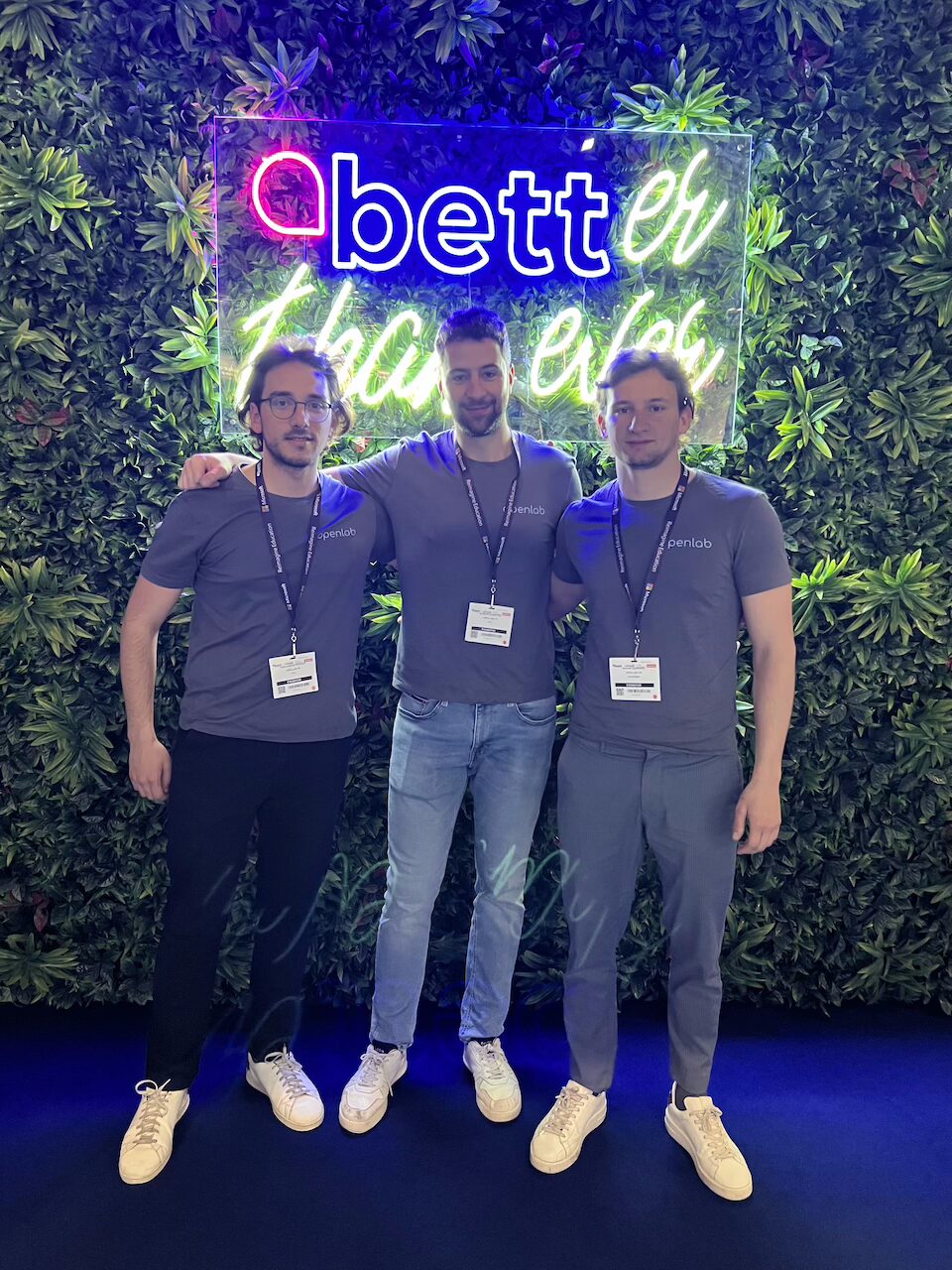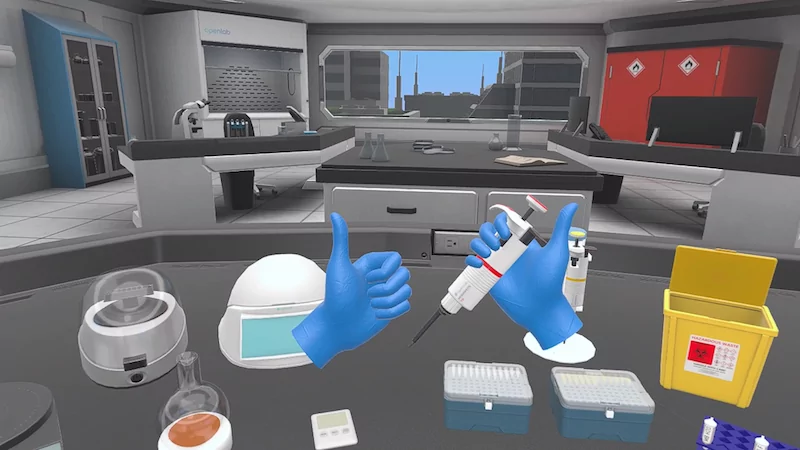Using technology to teach technology, and science and mathematics, this is the key that the start-up OpenLab has chosen to use to propose itself to the education market.
The edutech startup was born in 2020, at the height of the pandemic period, and harnesses the potential of immersive technologies and virtual reality to enhance, accelerate and deepen learning in the so-called STEM (science, technology, engineering, mathematics) disciplines with the clear objective of using the potential of technologies to bring theory and practice closer together through interactive simulations that allow students to learn laboratory protocols and techniques in an immersive and safe manner.
OpenLab creates and offers advanced virtual environments that realistically recreate chemistry, biology, physics and mechanics laboratories. Thanks to hand-tracking technology, students interact directly with virtual instruments and equipment using their own hands, increasing realism and involvement and being able to practice and repeat laboratory protocols without risk; learn through integrated interactive quizzes; visualise complex scientific concepts at the molecular level; and access virtual laboratories anywhere, anytime. All activities are therefore configured as a real ‘training’ in the use of scientific instruments and the development of the necessary confidence to make the practice effective and prepare students for the time when they will then be working in laboratories and with physical instruments, giving them the necessary preparation and confidence to be productive and creative right from the start. The OpenLab tool also features a dashboard through which teachers and trainers can monitor students’ progress in real time.

OpenLab conducted programmes to test its collaborative platform with the University of Insubria, highlighting how the integration of virtual reality into traditional teaching methodologies significantly increases students’ theoretical understanding and motivation, and how virtual reality enables an immersive experience that improves learning, engagement and, last but not least, the safety of laboratory activities. In particular, the research project conducted with the Lombardy University involved over 180 students, clearly demonstrating all the benefits of using VR technologies as a complementary tool to traditional teaching (reference: Original Research Article Frontiers in Education, 10 June 2024 Section: STEM Education – Volume 9 https://doi.org/10.3389/feduc.2024.1354526 Adding immersive virtual reality laboratory simulations to traditional teaching methods enhances biotechnology learning outcomes).
The founders of OpenLab were Simone Zamparini who is now the company’s CEO, studied at UCLA, worked and lives in California, Pierlorenzo Peruzzo who serves as CTO has expertise in various fields from video games to artificial intelligence and also completed his studies in California at Cal Poly in Pomona, and Alberto Zavattoni who gained his scientific knowledge in various disciplines at the University of Insubria and the Mario Negri Institute. The three found themselves at the beginning of the covid plague and worked to develop something that would allow students to continue their practical activities despite the limitations imposed by the closure of physical laboratories. Initially developed for the university context, OpenLab is now used by over 40 institutes and universities in Italy and abroad, helping to revolutionise the educational approach in scientific disciplines. OpenLab was incubated at the USC Marshall School of Business Incubator and received seed stage funding from Blackstone, Future Funders and Cal Poly Pomona.

‘Innovating in education is fundamental for the future and requires great attention, because it directly affects the education of the new generations,’ explains Zamparini. ‘New technologies are important, but we also need method and the ability to adapt to change, evaluating results in order to continuously improve. Only in this way can we overcome the idea of effective training for all and focus on customised courses that develop high-value skills, which are fundamental for tomorrow’s society. With OpenLab, we are working to modernise training, integrating technology with new didactic methods oriented towards personalisation and effectiveness, and we are already seeing how this approach can lead to concrete and lasting results”,
Since 2020, the year of its foundation, OpenLab has developed and consolidated important strategic partnerships that have made it possible to validate the product and accelerate its dissemination with the University of Insubria and the University of Teramo, which have contributed to the scientific and technical development of the platform. It has developed a commercial agreement with Mr Digital, one of the main distributors of technology for schools in Italy, and its solutions are now used by more than 45 Italian high schools.
ALL RIGHTS RESERVED ©
